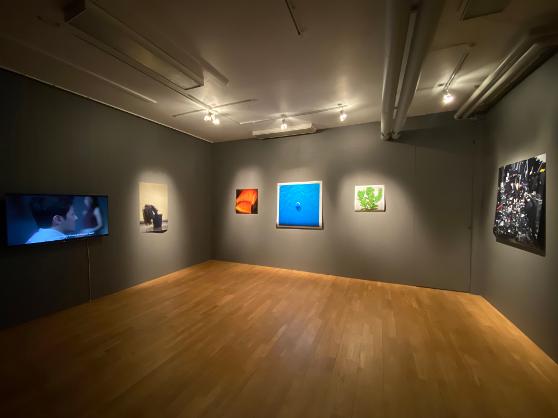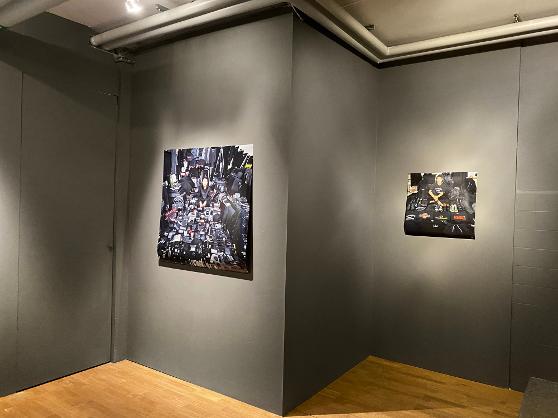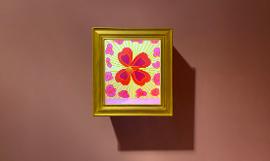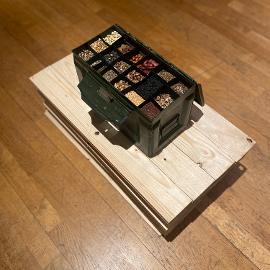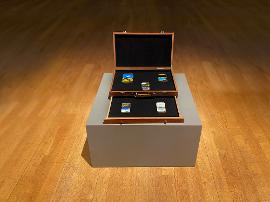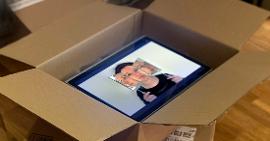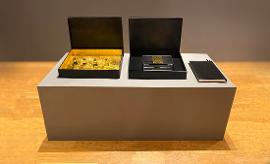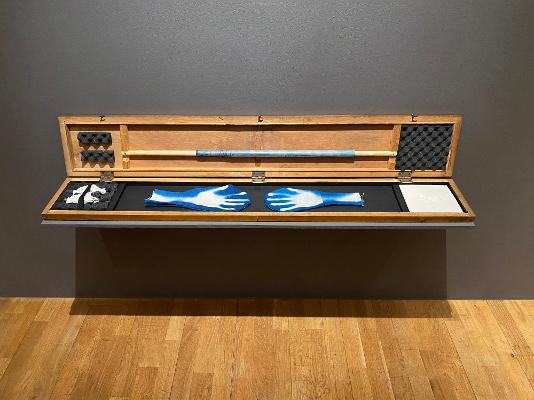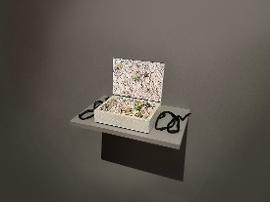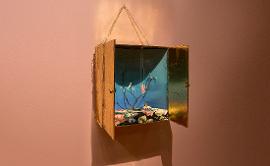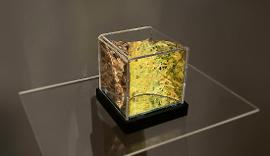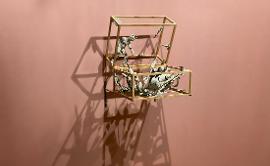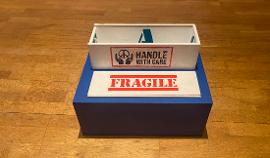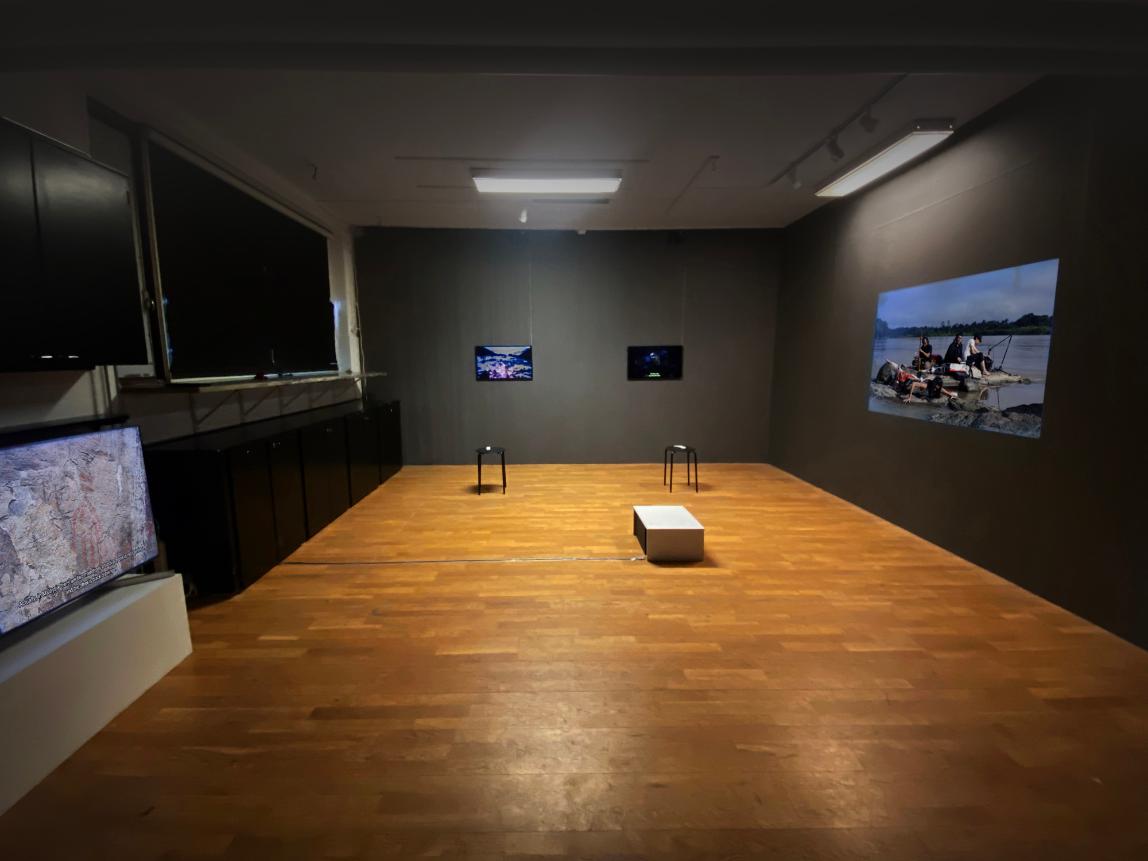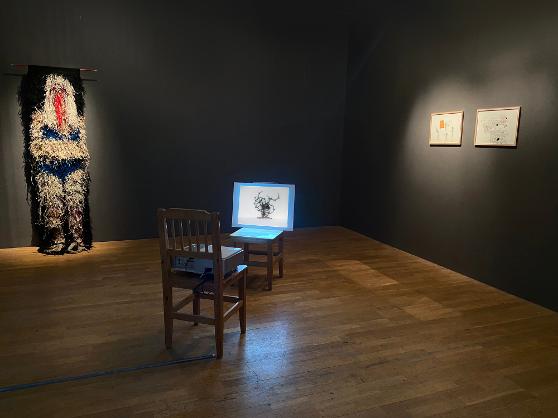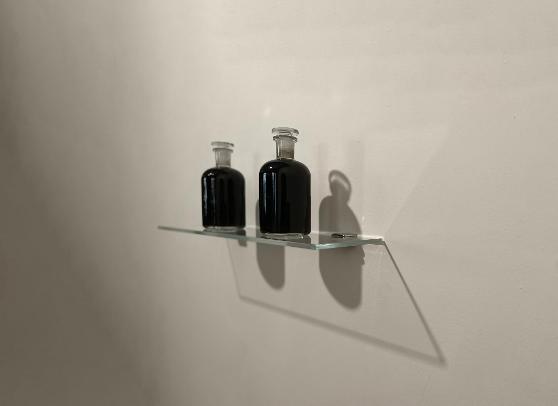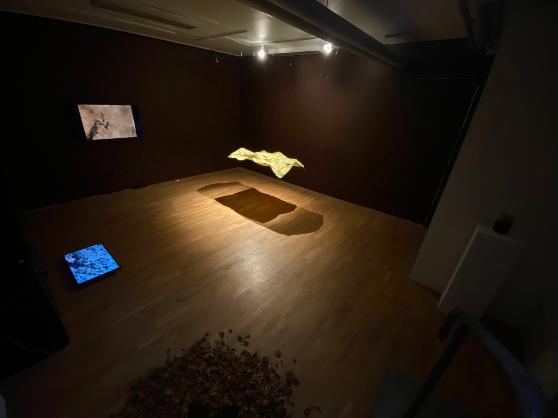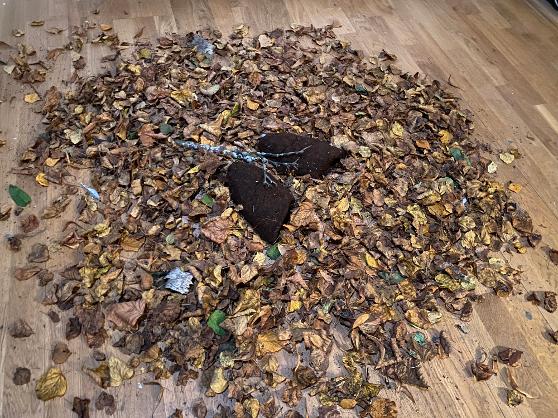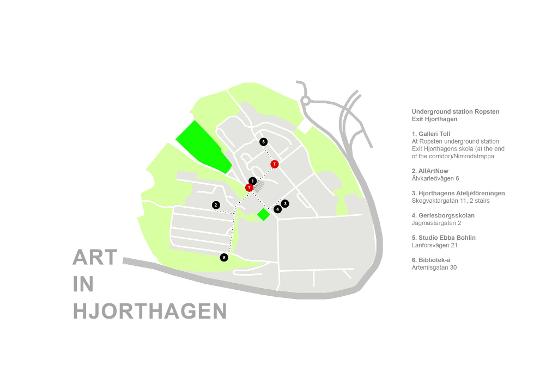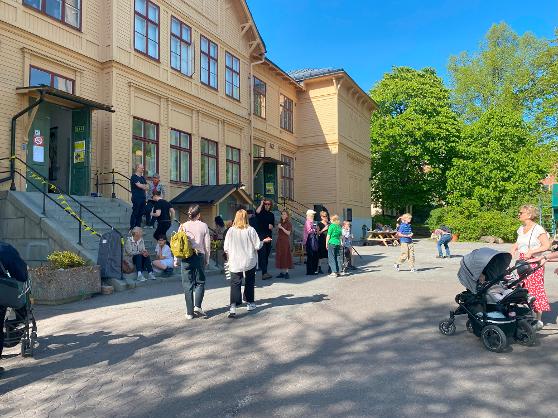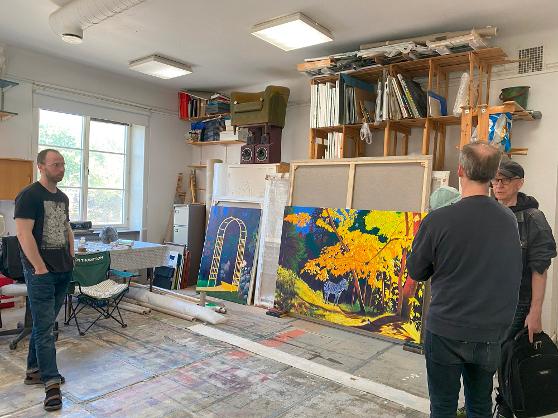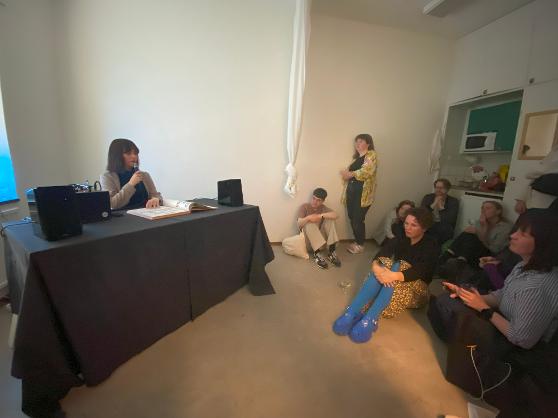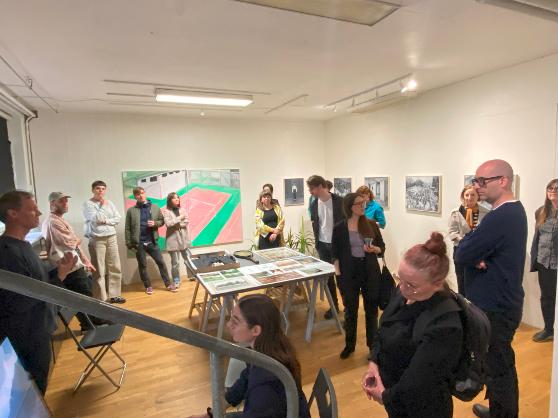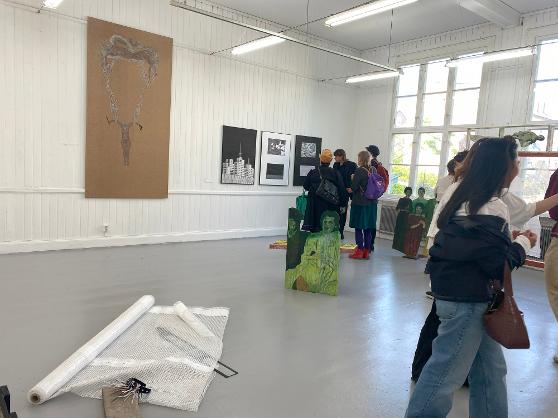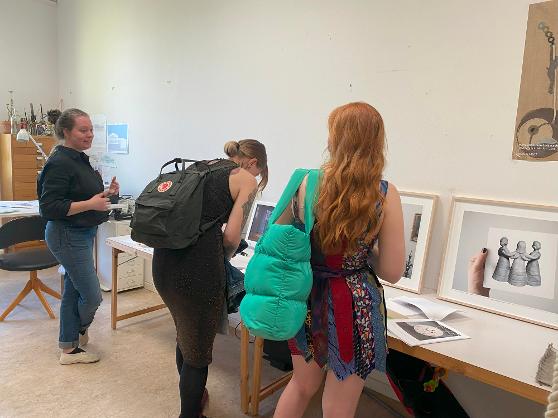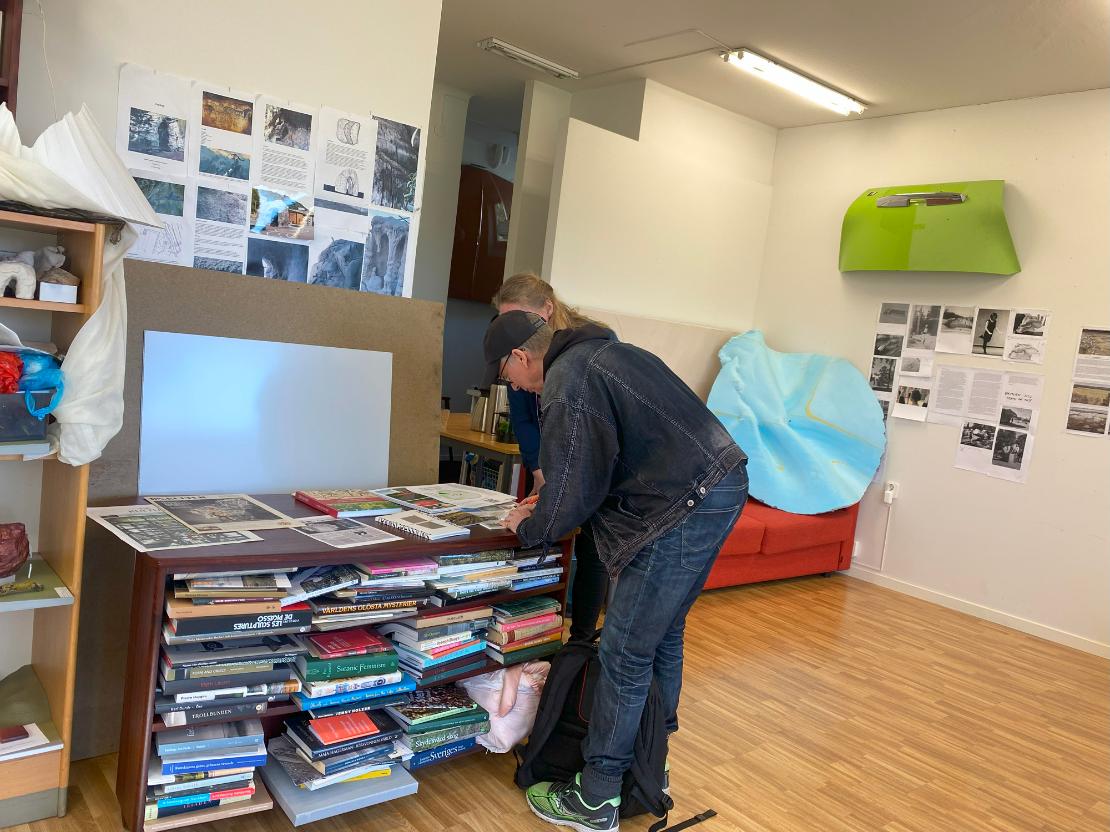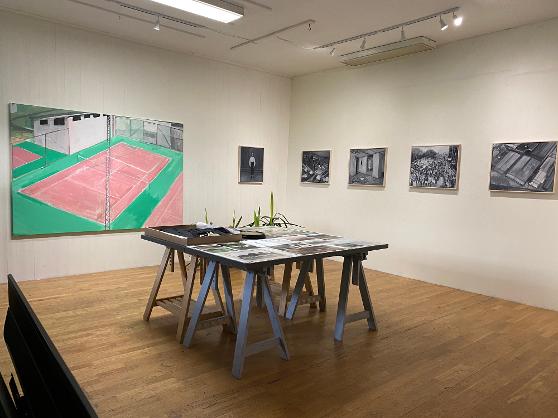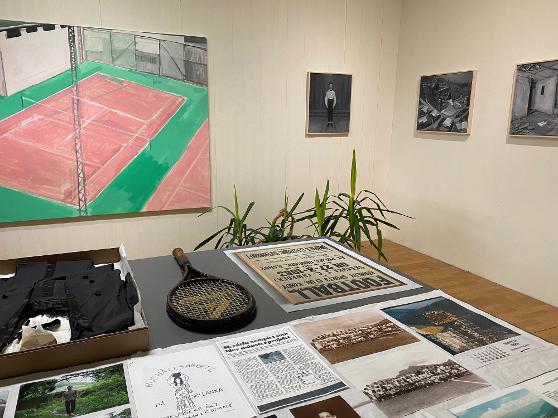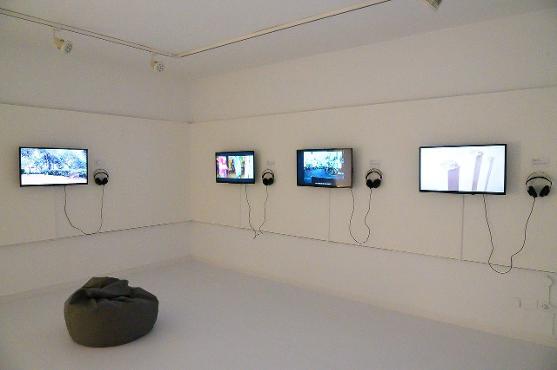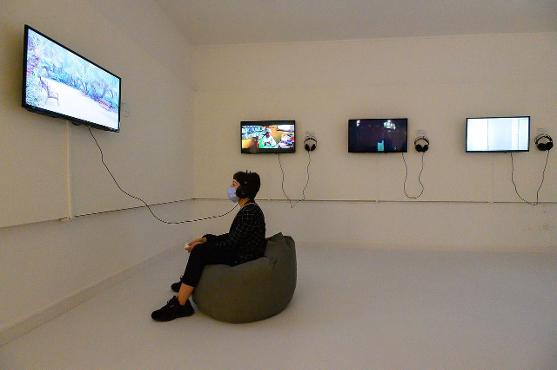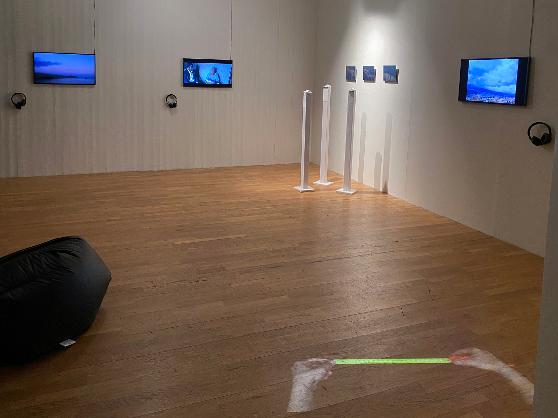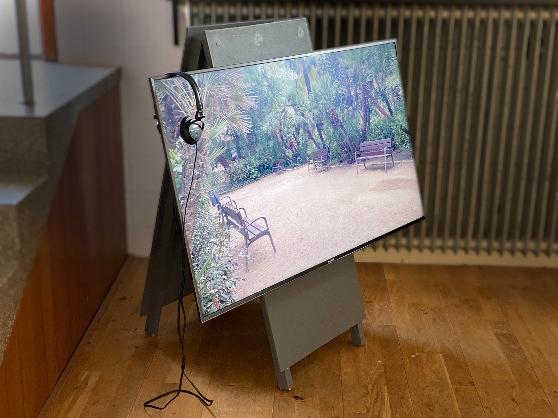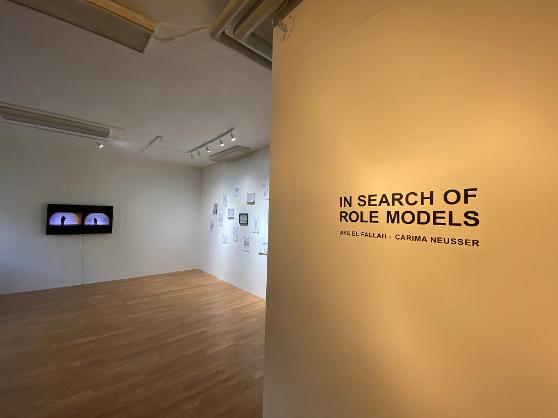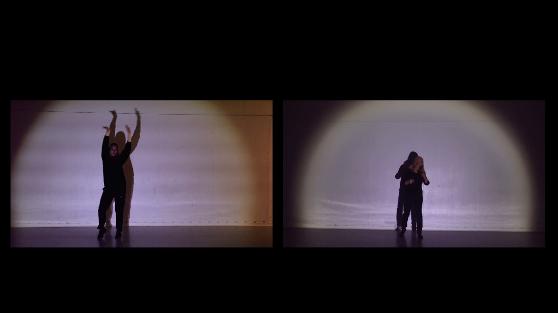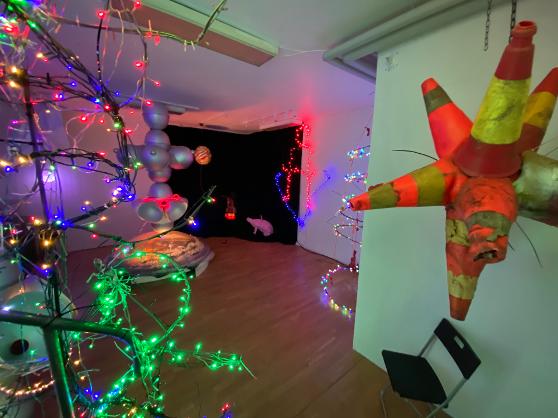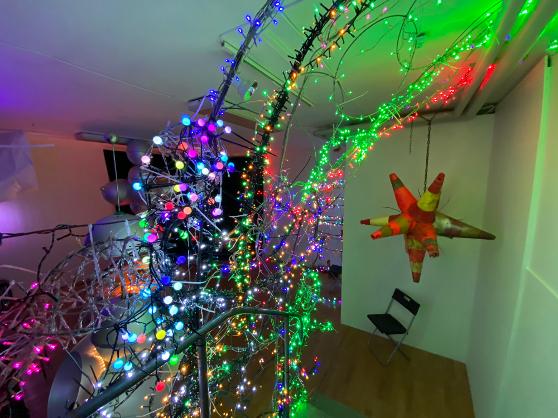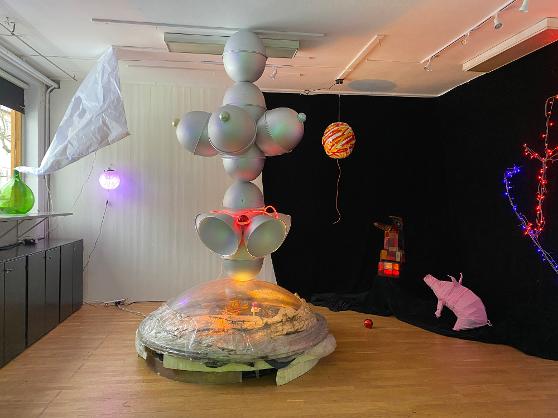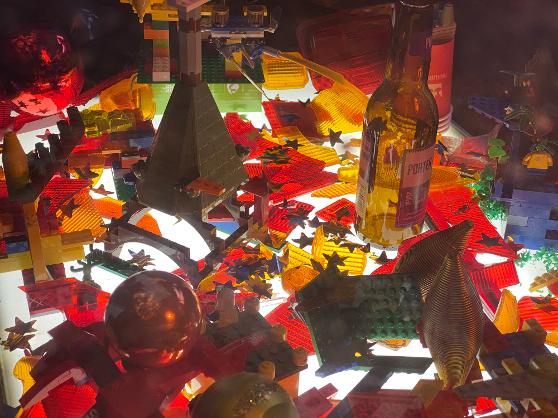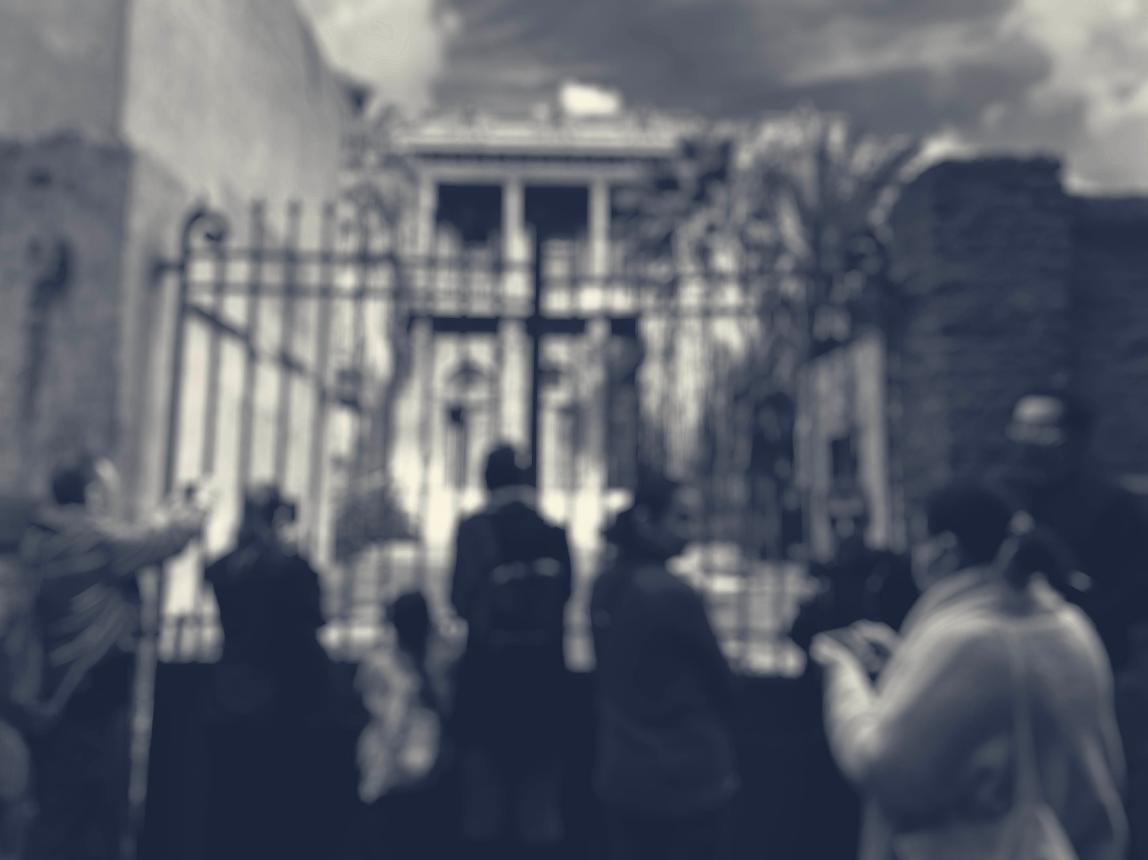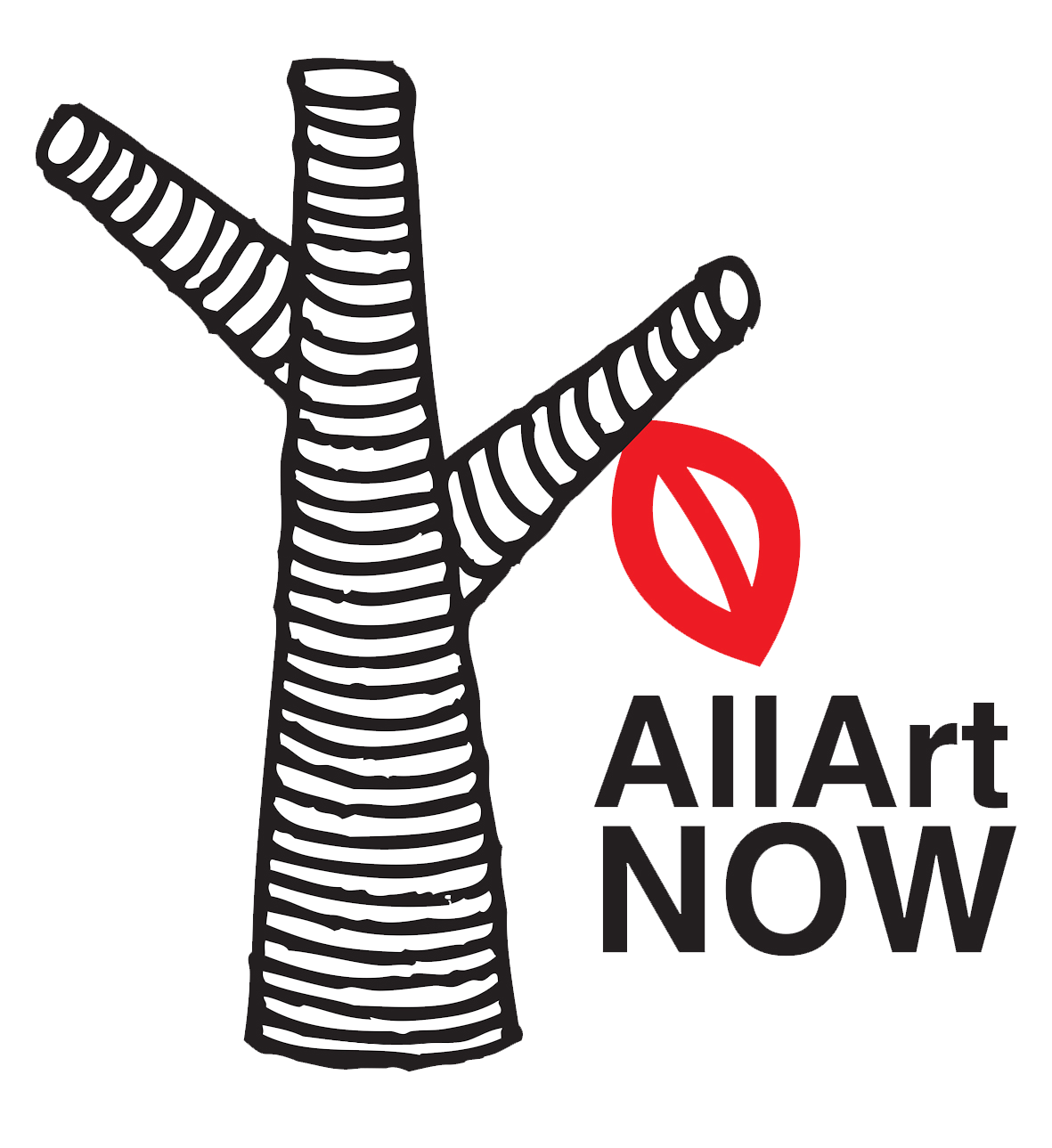Conversations on Attachment
Artists: Ok Hyun Ahn - Jeongmee Yoon - Kyungja Jeong
Curated by Fragment S
There is a natural instinct for us as humans to form an attachment with certain objects or even people, conveying a particular emotion exclusive to the individual. ‘Conversations on Attachment’ is a collection of artworks by three female Korean artists, Ok Hyun Ahn, Jeongmee Yoon, and Kyungja Jeong, reflecting on how we can leave traces of ourselves in living and non-living things. Done with subtle grace and complexity unique to their gaze; many of the works shown display a sense of dysphoria that brings familiarity to something seemingly foreign.
In an ever-so-changing world where difficulties are being faced on a global scale, many aspects of our lives have become darkened. Yet, there is the sense of foraging and unexpectedly forming connections in newly arisen situations. Quiet and loneliness are common in the aftermath of being put in an overwhelming environment. Yet there is a tinge of serenity, too - the solemn peace of the after-party. It invites oneself to create a dialogue within. The exchange of thoughts allows us to make unforeseen attachments with the past, present and future.
Inside, I hide my Happiness
artists: Amalia Årfelt - Anna Vasof - Connie Chappel - Muhammad Ali - Nikolina Stallborn
Nisrine Boukhari - Petri Hytönen - Rezan Arab - Shelley Vanderbyl- Timo Menke - Tracy Peters
Curator: Abir Boukhari
How can art be a therapeutic trajectory for artists and a powerful tool for improving our lives within the context of our suffering world? Our world has agonizing wars, pandemics, economic vulnerabilities and ecosystem failures. Yet, do we still believe art can create change when feelings of despair dominate our thoughts? Can we dare to think of our inner power as a form of action against this global collapse?
Since 2017, I have curated a series of projects on art as therapy. The artists in these projects create art as a reflection of their experiences. They challenge themselves and others by producing artwork on healing that evokes a life worth living. When first started curating the concept of art as therapeutic, the world had not yet faced the universal pain of the pandemic. Then I revisited this concept during the pandemic to show artists working during a time of isolation, separation, and death. So, I curated their artwork as a mobile exhibition for elderly in-home care. The show was presented inside a box. The idea was to provide positive energy through art.
The mobile exhibition motivated a new project – Inside, I hide my Happiness – using boxes to challenge new thoughts about the optimistic energy exchange between artists and viewers.
The artists in the project explore the idea of Happiness—the highest purpose of individuals—in reference to Aristotle's quotation, "Happiness depends upon ourselves."
Each artist uses the box as a format to create and contain their personal story. In this sense, the box acts as a symbolic body. It embraces an inner world that holds, hides, and reflects life's pain, hope, and Happiness.
The project seeks to provide an encounter with Happiness by presenting artworks as magical boxes, each filled with different stories. The boxes reveal a sense of how Happiness varies between individuals and how the desires for happiness change over time. The resulting exhibition affirms the expression of Happiness within a small intimate space within a larger public space.
Can artists provide a glimpse into an inner world that sparks a ray of Happiness, which evolves into a more positive perspective on life?
When we speak about art and Happiness, does a "beautiful" work evoke Happiness, or does Happiness evolve through art that challenges our mind in more profound directions?
Can art generate thoughts and energy in meaningful ways to create a better world?
The story of indigenousness and the Ownership of history
Artists: Kamal Sabran (MY) - Kapallorek Art Space (MY) - Projek Rabak, Art Collective (MY) - Stefano Cagol (IT)
Co-curated: Khaled Ramadan & Amir Zainorin
The exhibition engages with the discourse around how indigenousness and nature are affected by mainstream cultural attitudes of industrialised nations, the very nations contributing to existing environmental problems. This leads us to question, can aesthetic thinking support the conservation and restoration of nature or indigenous rights and ways of life? Can indigenous populations across the globe challenge the mainstream documented (art) history written by the non-indigenous? Can indigenous populations achieve the liberty to collectively claim “their own history and narratives”, antagonising the dominant discourse? the project intends to address these questions drawing on different perspectives of man, nature, and their interrelation.
Life isn’t a bed of neuroses
Artists: Emelie Röndahl - James Webb - Gernot Wieland - and a previously unknown painting by Michelangelo Merisi da Caravaggio
Guest Curator: Jonatan Habib Engqvist
Anyone who doesn’t want to join still can *
Here's a little song you can’t all join in with,
It isn’t very simple and neither is it new
Make your own words up unless you want to
Any old words just won’t do
Yellow, blue, what’ll I do?
Don’t just sit here thinking.
Black, white, keeps you up all night.
Don’t these colours ever bother you?
Here's a little dance you can’t all join in with,
It isn’t very simple and neither is it new
Make your own steps up unless you want to
Any old steps simply won’t do
Left, right, you won’t get it right
Step out line and you won’t be alright.
Clap hands, move around
And make sure to put yourself down.
(don’t get up)
Here's a little world you can’t all join in with,
It isn’t very simple, and neither is it new
Make your own life up unless you want to
Any old life simply won’t do
Love, yeah, ain’t nothing new
There's someone much worse than you
Don’t bother setting them free
Just be what you don’t want to be
* To the tune of You Can All Join In, Traffic, 1968
Artist: Tracy Peters
Curator: Abir Boukhari
Entangled Ecologies is a new exhibition by Canadian artist Tracy Peters that builds on her investigation of the bog as an ecological skin and preserver of life.
Both Canada and Sweden have a high concentration of peatland, which climate scientists consider one of the most efficient ecosystems on earth. During her residency in Stockholm, Peters traveled to Store Mosse National Park which is the largest protected bog in Sweden.
Peters has been focussing on Sphagnum moss as a protective blanket that grows on the surface of bogs. In Sweden, she searched below the surface for analogies between the bog and the human body as interdependent processes.
Her sensitivity towards the bog in Småland has resulted in photo-based installation, animation and video to deepen her understanding of peatland as a space of preservation that protects and nurtures the environment it inhabits.
Entangled Ecologies will situate visitors in a space below ground level and intend to convey ideas about regeneration cycles, and the bog as a liminal space suspended between death and life.
The exhibition is part of the residency program, organized by AllArtNow
Into Uncertain Present
VIDEO PROGRAM
Venue//Laterna Magica Museum//Copenhage
Artists: Anna Ill - Anna López Luna & Mounir Gouri - Chantal Rousseau - Daniela Delgado Viteri - Diana Jabi - Felice Hapetzeder
Manel Romdhani - Mats Hjelm - Muhammad Ali - Nina Wedberg Thulin - Selim Ben Cheikh - Tracy Peters
Curator: Abir Boukhari
The Albert Camus’s quotation inspired our concept “Until now I always felt a stranger in this town, and that I’d no concern with you people. But now that I’ve seen what I have seen, I know that I belong here whether I want it or not. This business is everybody’s business.” The Plague, p.209
In the novel, the narrator is a stranger who finds himself separated from his own home and his wife because of the Plague which invaded Oran City. First, he is looking for a way to escape the city, but later on, he decides to stay to support the others in solidarity.
This collective fight against the pandemic leads to equality and belonging, where all people experience a form of exile, live in isolation, separate from their beloved, and fight against death; we are all prisoners, sharing the fear and the uncertainties of the moment.
Do we understand the plague as a collective disaster that we all must fight against in support of each other? Or, do we experience distress as individuals and believe that one’s own pain is unique and separate? Does this encourage solidarity and compassion between humans, or is it a reason to blame each other?
During the Pandemic period, I invited thirteen artists to have online meetings using the selected quotation as a starting point, to discuss and share their thoughts, and create work which reflects on the situation with their own experiences.
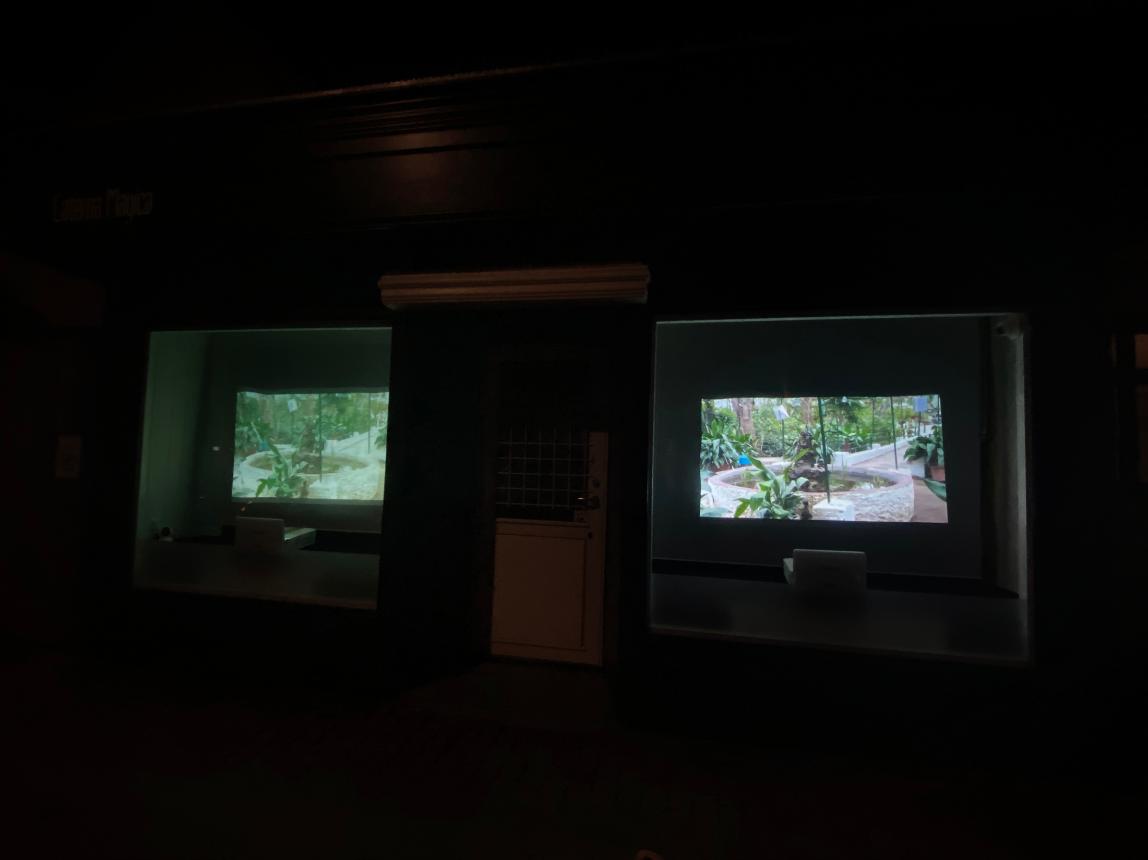
The venues:
1-Galleri Toll, Ropsten Metro, exit Hjorthagens Skola (at the end of the corridor)/Nimrodstrappan
2- AllArtNowLab, Älvkarleövägen 6
3- Hjorthagens Ateljéföreningen, Skogvaktargatan 11, 2 stairs.
4- The school of Gerlsborgsskolan, Jägmästargatan 2
5- Studio Ebba Bohlin, Lanforsvägen 21
6- Bibliotek-A, Artemisgatan 30
Participants: Aber Press - Alberte Skronski - Alexandra Larsson Jacobson - Camilla Larsson - Ebba Bohlin - Hillside Projects - Jesper Nordahl - Kjell Rylander - Martin Jacobson - Maria Andersson - Maria Toll
This initiative was launched by AllArtNow, in collaboration with all participating venues, artists and curators who are based in Hjorthagen.
"Art In Hjorthagen" is an initiative to create an annual event in the geographical area of Hjorthagen, where the audience can explore several artistic venues and activities in the surrounding.
It is the first attempt to build a network between these participating venues to enhance the creative scene of the artistic community in this area and develop future collaboration with each other by creating a dynamic cultural quarter and thinking together about how to sustain it.
On the 18th of May, we are inviting the public to visit several venues, and attend different activities:
The school of Gerlsborgsskolan has the students` final show in their location.
In Galleri Toll, artist Alberte Skronski exhibits Crash.
The artists in Hjorthagens Ateljéföreningen (Martin Jacobson, Kjell Rylander, Maria Toll and Maria Andersson) will have open studios as well artist Ebba Bohlin will have an open studio.
Studio Bibliotek-A will invite you to book release, performance, presentation about Bibliotek-A by artist Alexandra Larsson Jacobson and presentation about the summer project Mörby Gård Konst curated by Camilla Larsson.
The final venue to visit is AllArtNowLab where artist Jesper Nordahl presents his solo exhibition and invites everyone to a mingle.
Artist: Jesper Nordahl
Curator: Abir Boukhari
In this exhibition, Jesper Nordahl retrieves glimpses of his relations to and memories from Sri Lanka, where he spent two years with his family.
Nordahl's story started in the early 1980s when he moved with his family to Kotmale in Sri Lanka when he was 13.
The main reason for this temporary migration was that his parents worked for Skanska. This Swedish construction company was building a dam in Sri Lanka funded by the Swedish International development cooperation agency (SIDA).
His father was an engineer, and his mother was a teacher in a Swedish school.
After more than three decades, he returned to Sri Lanka in 2004, he started filming, collecting materials, revisiting the area where he lived and tracing back his relationship with this land and the effects of the dam.
The dam was disputed concerning how it came about and who benefited from the project. It was part of a series of other dams and the free trade zones, contested restructuring policies initiated by the World Bank and the IMF in the late seventies in the country.
Together with his family, Nordahl lived in a Swedish residential area in Kotmale, with houses built by Skanska and furnished with IKEA. It was a recreated area for the Swedish workers and their families at the Kotmale Dam.
Nordahl explores parts of his life in Sri Lanka in the Swedish community, the contradiction between the daily life and the complexity of the aid project in paintings, video, photography and objects.
Through a series of paintings, such as his self-portrait, the Swedish camp and the tennis court, The artist weaves a story of his life there and his revisit to the country after 30 years, describing his neglected room and the Swedish camp, which became a holiday resort.
Into Uncertain Present
/VIDEO PROGRAM/
Venue//Jiser Reflexions Mediterrànies//Bercelona
Artists: Daniela Delgado Viteri - Diana Jabi - Manel Romdhani - Mats Hjelm - Nina Wedberg Thulin - Selim Ben Cheikh
Curator: Abir Boukhari
The Albert Camus’s quotation inspired our concept “Until now I always felt a stranger in this town, and that I’d no concern with you people. But now that I’ve seen what I have seen, I know that I belong here whether I want it or not. This business is everybody’s business.” The Plague, p.209
In the novel, the narrator is a stranger who finds himself separated from his own home and his wife because of the Plague which invaded Oran City. First, he is looking for a way to escape the city, but later on, he decides to stay to support the others in solidarity.
This collective fight against the pandemic leads to equality and belonging, where all people experience a form of exile, live in isolation, separate from their beloved, and fight against death; we are all prisoners, sharing the fear and the uncertainties of the moment.
Do we understand the plague as a collective disaster that we all must fight against in support of each other? Or, do we experience distress as individuals and believe that one’s own pain is unique and separate? Does this encourage solidarity and compassion between humans, or is it a reason to blame each other?
During the Pandemic period, I invited thirteen artists to have online meetings using the selected quotation as a starting point, to discuss and share their thoughts, and create work which reflects on the situation with their own experiences.
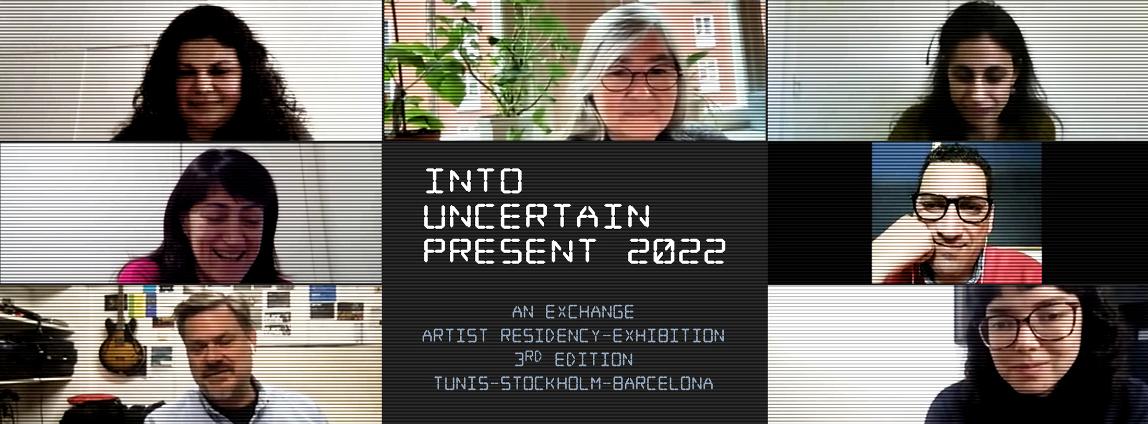
Meeting of Mindes Platform
Venue//Konstframjandet Varmland //Karlstad
Artists: Eden Mengisteab - Filippa Arrias - Helene Karlsson - Isabel Lofgren - Katarina Eismann
Nisrine Boukhari - Rossana Mercado.Rojas - Sandi Hilal - Sara Falkstad - Valeria Montti Colque.
Curator: Abir Boukhari
In the year 2019, Sweden celebrated a hundred years of giving women the right to vote; this important date inspired me to start a project with female artists so, Meeting of Minds had come to life.
The project has a special focus on the experience of feminist visual practices concerning migration and exile as a personal experience and how you could have a transcultural background and become part of more than one society.
The first meeting was organised in Stockholm in 2019, where six female artists from different cultural backgrounds exhibited their works and exchanged their thoughts about their own experiences as female artists and how they investigated feminist-related concepts in their artworks and the subject of migration.
Initially, the second meeting was to take place in 2020 in Karlstad as a public meeting and an exhibition featuring six female artists.
But instead -due to the COVID-19 Pandemic- the artists met virtually via Zoom.
During these meetings, their discourse shifted towards the impact of isolation, separation, death, and lockdown. Moreover, how these things have had affected the outcome of their artistic work.
This assembly emphasized the importance to create an alternative space for female artists to meet and discuss their works during the Pandemic and later on.
Thus, as a continuation, we started new meetings in 2021, inviting more female artists to join us, present their works during the time of the Pandemic, and investigate how we can establish a platform for the Meeting of Minds.
As a result of these meetings, we produced documentation from 2020/2021 where the artists share segments from their Meeting of Minds.
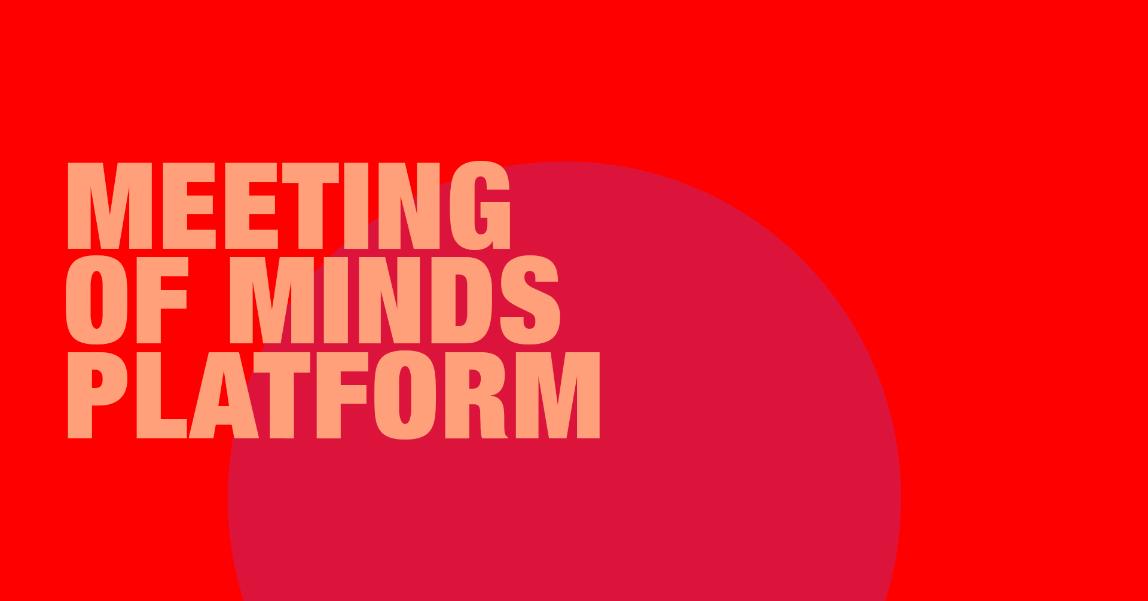
Artists: Annie Jonasson - Johanna De Verdier - Marcus Wallström
Curator: Janove Ekstedt
In the midst of a village-based just off-road 61 in Värmland, one can see the remains of a sawmill that has long been silenced, and occasionally a truck loaded with recently logged trees roars by just over the speed limit. The village Brunsberg exists in a landscape that has been defined by an industry that has become the spine of the Swedish economy - forestry. Here lies Skogforsk - a research station that since the 1950s has been conducting research that mainly aims to produce more “effective” strains of fir and pine trees, essentially trees that would grow fast while retaining high wood density.
The station has been liquidated but its activities and its intimate relationship to the forestry industry has left distinct physical traces in the village - but also in the minds of the local population. During the summer of 2021 Konstfrämjandet Värmland invited 3 artists to live and work at Skogforsk for four weeks as a part of their project “Skogen mellan oss” (“The Forest Between Us”) - Marcus Wallström, Annie Jonasson and Johanna de Verdier.
The work in this exhibition was created in relation to the residency and reflects upon the experiences and questions that emerged during this period, a conversation with the echoes that gives the location its importance. The stories of the location, the forest, and the traces that history has left in the memory of the village are expanded; the friction between ownership, industry, public access rights, and local residents is clear. In the future story, the forest’s own ecologies have the most important role.
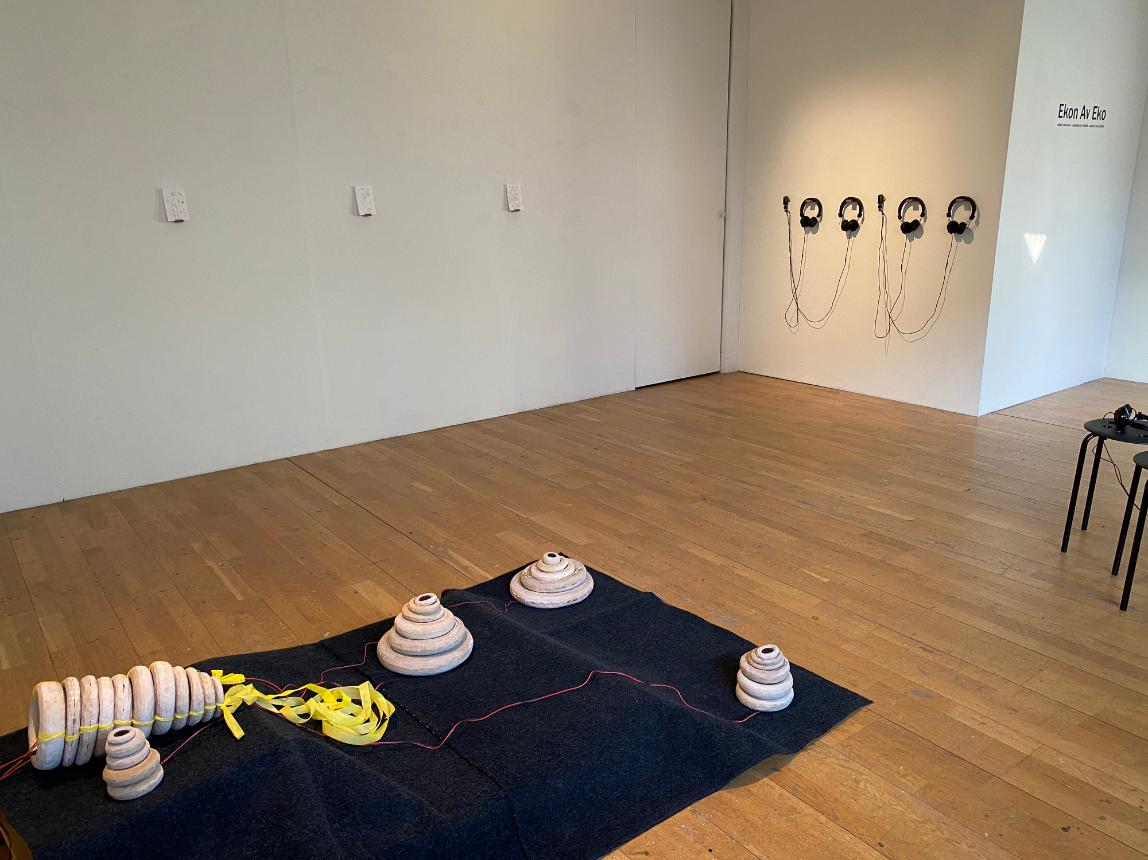
Artists: Daniela Delgado Viteri - Diana Jabi - Manel Romdhani - Mats Hjelm - Nina Wedberg Thulin - Selim Ben Cheikh -
Curator: Abir Boukhari
The Albert Camus’s quotation inspired our concept “Until now I always felt a stranger in this town, and that I’d no concern with you people. But now that I’ve seen what I have seen, I know that I belong here whether I want it or not. This business is everybody’s business.” The Plague, p.209
In the novel, the narrator is a stranger who finds himself separated from his own home and his wife because of the Plague which invaded Oran City. First, he is looking for a way to escape the city, but later on, he decides to stay to support the others in solidarity.
This collective fight against the pandemic leads to equality and belonging, where all people experience a form of exile, live in isolation, separate from their beloved, and fight against death; we are all prisoners, sharing the fear and the uncertainties of the moment.
Do we understand the plague as a collective disaster that we all must fight against in support of each other? Or, do we experience distress as individuals and believe that one’s own pain is unique and separate? Does this encourage solidarity and compassion between humans, or is it a reason to blame each other?
During the Pandemic period, I invited thirteen artists to have online meetings using the selected quotation as a starting point, to discuss and share their thoughts, and create work which reflects on the situation with their own experiences.
Artists: Daniela Delgado Viteri - Diana Jabi - Manel Romdhani - Mats Hjelm - Nina Wedberg Thulin - Selim Ben Cheikh
Curator: Abir Boukhari
The art residency acts as a mechanism to encourage and support intellectuals, artists, and cultural workers in the process of their artistic research and creative development. It fosters sustainability for the artistic body of ideas in an inclusive open society.
The pandemic crisis illuminates the value of creativity and the ways that new ideas can be generated in uncertain times.
The Strategy for many art residencies has been implemented through the virtual exchanging of artistic experience and many questions have been raised about the digital residency. Would it be more applicable in the future? Will we develop and adapt new formats for the art residency?
We began to explore the virtual residency format in 2020, we continued with the second edition in 2021 and, now, we are in the third edition.
The residency process unfolded through webinars, first proposing the project, then giving the artists time to meet, discuss the concept, produce new work, and finally exhibit the works in venues in Stockholm, Tunis and Barcelona.
The Albert Camus’s quotation inspired our concept for the second and the third edition of the residency “Until now I always felt a stranger in this town, and that I’d no concern with you people. But now that I’ve seen what I have seen, I know that I belong here whether I want it or not. This business is everybody’s business.” The Plague, p.209
In the novel, the narrator is a stranger who finds himself separated from his own home and his wife because of the Plague which invaded Oran City. First, he is looking for a way to escape the city but later on, he decides to stay to support the others in solidarity.
This collective fight against the pandemic leads to equality and belonging, where all people experience a form of exile, live in isolation, separate from their beloved, and fight against death; we are all prisoners, sharing the fear and the uncertainties of the moment.
Do we understand the plague as a collective disaster that we all must fight against in support of each other? Or, do we experience distress as individuals and believe that one’s own pain is unique and separate? Does this encourage solidarity and compassion between humans or is it a reason to blame each other?
For this residency, I invited six artists to have online meetings using the selected quotation as a starting point, to discuss, share their thoughts, and create work that reflects on the current situation in relation to their own experience.
Artists: Aya ElFallah - Carima Neusser
Curators: Elham Khattab, Per Hüttner & Abir Boukhari
The exhibition forms a part of the international research project "Local Role Models" initiated and organized by Out of the Circle (EG), Vision Forum (SE), and AllArtNow (SE).
Local Role Models is an interdisciplinary project where artists and curators from Egypt, Sweden, and Syria carry out a collective investigation into how we think differently about heroes and stars.
Who are the real heroes in our lives?
Are they the people who appear in the media? Or are they the people we meet in our every day who have a real influence on our values, goals, and existences?
In the exhibition, artists Aya ElFallah and Carima Neusser present new work that has grown out of a workshop in Cairo in January 2022. Both artists look at their parents and how they have shaped their life journeys.
PILIPALISTER Occupied AllArtNowLab
Artists:Petri Hytönen - Sampsa Indrén - Kalle Turakka Purhonen
Curators: Krista Eirene Mikkola - Abir Boukhari
" PILIPALISM är ett universellt fyrverkeri och en väg för en känslig hand.Pilipalism är allomfattande supermakt-den föds på ett ögonblick och fixas vid flyktig lycka. Den är vuxna mannens pinsamma känslor, hälleflundra av en liten pojke, kärleksdikt av en tonåring som odlar sin mustasch. Vi tycker om att rita och särskilt rita med ljus. Vi har så roligt att arbeta tillsammans och vi hoppas att åskådarna har det också, säger gruppen."
Pilipalister är en grupp som grundades 2019 i Borgå av tre finska bildkonstnär.
Venue//Rawabet Theatre//Cairo
Artists: Carima Neusser - Per Huttner
Curators: Per Huttner - Abir Boukhari - Elham Khattab
Local Role Models is an interdisciplinary project where artists and curators from Egypt, Sweden, and Syria carry out a collective investigation into how we think about heroes and stars. Who are the real heroes in our lives? Are they the people who appear in the media? Or are the real heroes in our lives people whom we meet in our everyday lives? Two public performances will be shown at Rawabet Theatre that reflects on these questions.
